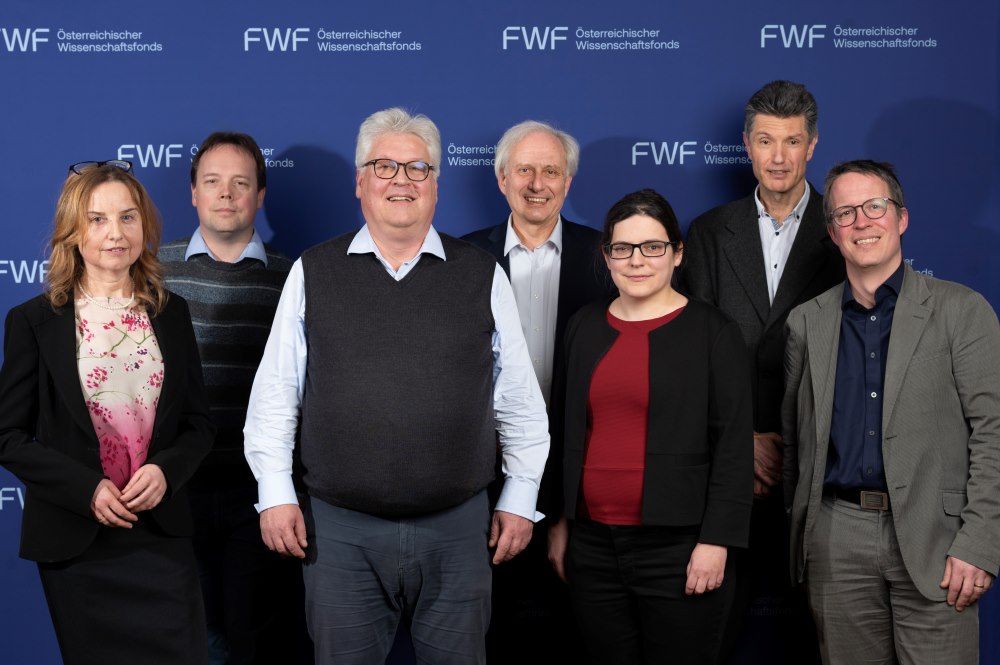May 6, 2024
Bilateral AI – New FWF Cluster of Excellence
Four research groups from ISTA involved
They are shaping the next level of artificial intelligence (AI). Four research groups from the Institute of Science and Technology Austria (ISTA) will be working on this mammoth task in a new FWF Cluster of Excellence – together with other scientists from various Austrian universities. The Austrian Science Fund (FWF) and the participating institutions are now investing 33 million euros in this project, thereby strengthening Austria as a location for AI research.

The Clusters of Excellence are part of the “exzellent=Austria” campaign of the Austrian Science Fund (FWF), which aims to strengthen Austria as a location for cutting-edge research. They combine research, education, and the promotion of young talent. Three clusters involving ISTA were already selected in the first funding round at the beginning of 2023 – in the fields of quantum sciences, energy storage, and microbiomes.
Two further project applications have now been approved, including one cooperative research project with ISTA scientists. It addresses a foundational and far-reaching issue: the next stage in the development of artificial intelligence. The cluster will be funded for a period of 5 years with 33 million euros – 60 percent of which are paid by FWF. An extension to 10 years with a total of 70 million euros is possible.
The next level of AI: Bilateral artificial intelligence
The FWF Cluster of Excellence “Bilateral AI” combines two of the most important strands of research in the field of artificial intelligence: sub-symbolic AI (machine learning) and symbolic AI (knowledge representation and reasoning). Both types of AI have different strengths – and weaknesses – but have so far been developed largely separately. The next generation of AI systems with better and more general problem-solving capabilities requires the combination of both. This integration, called bilateral AI, is intended to mirror something that humans do naturally: the simultaneous use of cognition and reasoning skills.
Christoph Lampert, representative of the Institute of Science and Technology Austria (ISTA) on the Board of Directors of the Bilateral AI Cluster: “With our four participating research groups, we already have a mixture of research on symbolic and sub-symbolic AI at ISTA, and we are delighted to be able to expand this network even further in the cluster together with other top researchers here in Austria. This is also an important addition to the European network within ELLIS.” Under the name European Laboratory for Learning and Intelligent Systems (ELLIS), research institutions from the EU collaborate on the advancement of machine learning and artificial intelligence. The FWF Cluster represents another powerful research network in this field.
Lampert: “Together, we can help shape the next level of AI development: Artificial intelligence which is no longer just a useful specialist idiot, but a generalist that can adapt itself flexibly to different situations. This should also be accompanied by greater reliability of AI – the necessary basis for greater public trust in this technology. Understandably, people want an AI that does not hallucinate and whose decisions are comprehensible and reliable. Together with our partner institutions, my colleagues at ISTA, and I want to contribute to this.”
Six Austrian research institutions
The cluster’s Director of Research is Sepp Hochreiter from the Johannes Kepler University Linz. Also involved are research groups from the Vienna University of Technology, the University of Klagenfurt, the Graz University of Technology, the Vienna University of Economics and Business, and the Institute of Science and Technology Austria (ISTA). On the ISTA side, the four research groups of Dan Alistarh, Krishnendu Chatterjee, Christoph Lampert, and Marco Mondelli partake in the collaboration.



